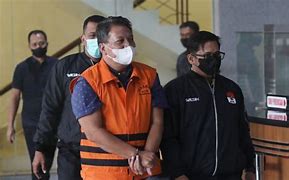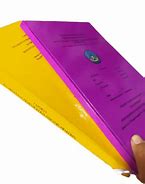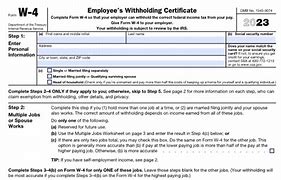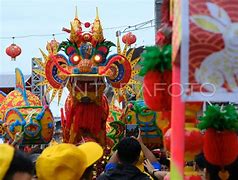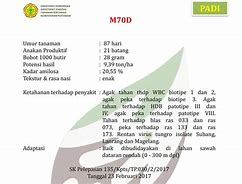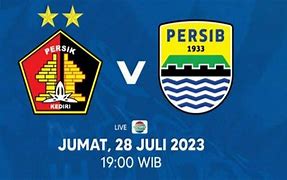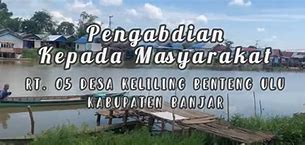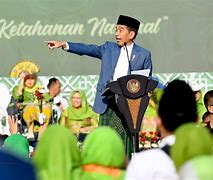
What was Joko Widodo’s first occupation?
What was Joko Widodo’s first occupation?
Prior to becoming Indonesia’s president, Joko Widodo worked for a state-owned pulp mill in the Aceh region of northern Sumatra and later established his own furniture factory in Surakarta. By 2002 he had become a highly successful furniture exporter and chairman of a local branch of the country’s influential furniture manufacturers’ association.
Offenbar hast du diese Funktion zu schnell genutzt. Du wurdest vorübergehend von der Nutzung dieser Funktion blockiert.
President of Indonesia from 2014 to 2024
Joko Widodo (Indonesian: [ˈdʒoko wiˈdodo]; born Mulyono on 21 June 1961), popularly known as Jokowi, is an Indonesian politician, engineer, and businessman who served as the seventh president of Indonesia from 2014 to 2024. Previously a member of the Indonesian Democratic Party of Struggle (PDI-P), he was the country's first president to not emerge from the country's political or military elite. He previously served as governor of Jakarta from 2012 to 2014 and mayor of Surakarta from 2005 to 2012.
Jokowi was born and raised in a riverside slum in Surakarta. He graduated from Gadjah Mada University in 1985, and married his wife, Iriana, a year later.[2][3] He worked as a carpenter and a furniture exporter before being elected mayor of Surakarta in 2005.[4][5] He achieved national prominence as mayor and was elected governor of Jakarta in 2012,[6] with Basuki Tjahaja Purnama as vice governor.[7][8] As governor, he reinvigorated local politics, introduced publicised blusukan visits (unannounced spot checks)[9] and improved the city's bureaucracy, reducing corruption in the process. He also introduced a universal healthcare program, dredged the city's main river to reduce flooding, and inaugurated the construction of the city's subway system.[10]
In 2014, Jokowi was nominated as the PDI-P's candidate in that year's presidential election,[11] choosing Jusuf Kalla as his running mate. Jokowi was elected over his opponent, Prabowo Subianto, who disputed the outcome of the election, and was inaugurated on 20 October 2014.[12][13] Since taking office, Jokowi has focused on economic growth and infrastructure development as well as an ambitious health and education agenda.[14] On foreign policy, his administration has emphasised "protecting Indonesia's sovereignty,"[15] with the sinking of illegal foreign fishing vessels[16] and the prioritising and scheduling of capital punishment for drug smugglers. The latter was despite intense representations and diplomatic protests from foreign powers, including Australia and France.[17][18] He was re-elected in 2019 for a second five-year term, again defeating Prabowo Subianto.[19]
Near the end of his second presidential term, however, his relationship with PDI-P deteriorated because he supported Prabowo for his 2024 presidential campaign, instead of his own party's presidential candidate, Ganjar Pranowo; Jokowi's elder son, Gibran Rakabuming Raka, even ran as Prabowo's vice-presidential candidate.[20] On 22 April 2024, after the Constitutional Court rejection over all claims and disputes related to the 2024 presidential election, the PDI-P Honorary Council declared that both Jokowi and Gibran would no longer be PDI-P members,[21][22] thus, confirming their separation from PDI-P. Despite that, in their termination, Jokowi and Gibran are still allowed to retain their membership card, because the PDI-P still honored them as the sitting/outgoing president and incoming vice president respectively. However, their cards now do not grant them any rights within the party.[23] The full expulsion is declared completed on 4 December 2024.[24]
general election
Megawati Sukarnoputri nominated Jokowi to be the presidential candidate of her party.[11] During the campaign, a social media volunteer team, JASMEV, once made a provocative statement by threatening that Islam would not be given a space in Indonesia if Jokowi won the 2014 election.[87][88] The group was paid IDR 500 million to campaign for the Joko Widodo-Jusuf Kalla ticket during the 2014 election.[89]
Following the release of Quick Count results from many different polls, Jokowi declared victory on 9 July. However, his opponent Prabowo also declared victory, creating confusion among the population.[90] On 22 July, hours before the announcement of the election results, Prabowo withdrew.[91] Jokowi's victory was expected and realised hours later.[92][91] The General Elections Commission (KPU) gave him a close victory with 53.15% of the vote (almost 71 million votes), to Prabowo's 46.85% (62 million votes),[93] though Prabowo's camp disputed these totals.[94]
After his victory, Jokowi stated that growing up under the authoritarian and corrupt New Order regime, he would have never expected someone with a lower-class background to become president. The New York Times reported him as saying, "now, it's quite similar to America, yeah? There is the American dream, and here we have the Indonesian dream".[95] Jokowi was the first Indonesian president outside the military or the political elite, and the political commentator Salim Said gave the popular view of the politician as "someone who is our neighbour, who decided to get into politics and run for president".[95]
Early life and education
Jokowi was born Mulyono at Brayat Minulya General Hospital in Surakarta, on 21 June 1961.[25][26][27] Jokowi is of Javanese heritage. He is the only son of Widjiatno Notomihardjo and Sudjiatmi and the eldest of four siblings. His father came from Karanganyar, while his grandparents came from a village in Boyolali.[28] His three younger sisters are Iit Sriyantini, Idayati, and Titik Relawati.[29][30] Jokowi was often sick as a toddler, and his name was thus changed—a common practice in Javanese culture—to Joko Widodo, with widodo meaning "healthy" in Javanese.[26] At the age of 12, he started working in his father's furniture workshop.[31][32] Jokowi's family lived in three different rented homes (one of which the government declared condemned property) during his youth, which greatly affected him. Later, he organized low income housing in Surakarta during his years as mayor of that city.[33]
Jokowi's education began at State Elementary School 111 Tirtoyoso, an ordinary public school.[34] He continued his studies at State Junior High School 1 Surakarta.[35] Later, he wanted to attend State Senior High School 1 Surakarta, but did not score high enough in the entrance exam. Therefore, he enrolled in the newer State Senior High School 6 in that city.[36]
After graduating from university, Jokowi began working at PT Kertas Kraft Aceh [id] (KKA), a state-owned firm in Aceh, Sumatra.[37] He worked in the present-day Bener Meriah Regency between 1986 and 1988 as a supervisor of forestry and raw materials at a Sumatran pine plantation.[38][39] However, Jokowi soon lost interest in the firm and returned home. He worked in his grandfather's furniture factory for a year before establishing his own company, Rakabu, whose namesake is his first child. He obtained his initial capital from a Rp 15 million investment from his father and a bank loan. The company, which mainly focused on teak furniture, nearly went bankrupt at one point but survived following an IDR 500 million loan from Perusahaan Gas Negara. By 1991, the company began exporting its products, and they were successful in international markets. The firm first established a presence in the European market in France, and it was a French customer named Bernard who gave Joko Widodo the nickname "Jokowi".[37][40][5]
By 2002, Jokowi had become the chairman of Surakarta's furniture manufacturers association.[5] Ultimately he decided to become a politician and promote reform in his home town, Surakarta, after seeing the neat layouts of some European cities while promoting his furniture there.[32] After becoming mayor, he also made a joint venture with politician and former lieutenant general Luhut Binsar Pandjaitan, when the two founded PT Rakabu Sejahtera (from Rakabu and Luhut's PT Toba Sejahtera).[41][42]
In 2018, Jokowi reported his net worth to be Rp 50.25 billion (US$3.5 million), mostly in the form of property holdings in Central Java and Jakarta.[43]
After first joining PDI-P in 2004, Jokowi ran in the mayoral race in Surakarta in 2005 with F. X. Hadi Rudyatmo as his running mate, with the support of PDI-P and the National Awakening Party.[44][45] The pair won 36.62% of the vote against the incumbent Slamet Suryanto and two other candidates. During the campaign, many questioned his background as a property and furniture businessman. However, one academic paper claimed his leadership style was successful because it established an interactive relationship with the people, through which he was able to induce people's strong faith in him.[46] He adopted the development framework of European cities (which he frequently travelled to as a businessman) as a guide for changes in Surakarta.[47]
His notable policies as mayor include[48] building new traditional markets and renovating existing markets, constructing a 7-km city walk with a 3-meter wide pedestrian walkway along Surakarta's main street, revitalising the Balekambang and Sriwedari parks, employing stricter regulations on cutting down trees along the city's main streets, rebranding the city as a centre of Javanese culture and tourism under the tagline "The Spirit of Java", promoting the city as a centre for meetings, incentives, conventions and exhibitions (MICE), launching healthcare and education insurance program for all residents, a local bus rapid transit system named Batik Solo Trans and a Solo Techno Park, which helped support the Esemka Indonesian car project.[49]
It was during his tenure as mayor that he conducted the blusukan, an impromptu visit to specific areas to listen to people's issues, which proved popular later in his political career. He also prohibited his family members from bidding for city projects, therefore suppressing the risk of corruption. His policies brought him into conflict with then provincial governor Bibit Waluyo, who on one occasion called Jokowi a "fool" for the latter's opposition to a provincial construction project in Surakarta.[50]
His supporters pointed to rapid positive changes in Surakarta under his leadership and the city's branding with the motto 'Solo: The Spirit of Java'. While in office, he successfully relocated antique stalls in the Banjarsari Gardens without incident, a helpful move in revitalising the functions of the open green space; he emphasised the importance of business firms engaging in community activities; he improved communications with the local community by appearing regularly on local television. As a follow-up of the city's new branding, he applied for Surakarta to become a member of the Organization of World Heritage Cities, which was approved in 2006, and subsequently had the city chosen to host the organisation's conference in October 2008.[citation needed]
In 2007, Surakarta had also hosted the World Music Festival (Festival Musik Dunia/FMD), held at the complex of Fort Vastenburg near the centre of the city. The following year, it was held in the Mangkunegaran Palace Complex.[citation needed]
Part of Jokowi style was his populist 'can-do' (punya gaye) elements designed to build bonds with the broad electorate.[46] As mayor, he became personally involved in an incident just before Christmas 2011 when the Surakarta municipality had overdue bills of close to $1 million (IDR 8.9 billion) owed to the state-owned electricity company Perusahaan Listrik Negara (PLN).[citation needed]
Following its policy of pursuing a more disciplined approach to collecting overdue bills, it imposed a blackout on street lights in the city just before Christmas. The city government quickly authorised payment, but in settling the bill, protested that the PLN should consider the public interest before taking such action. To reinforce the point, Jokowi made a highly publicised personal visit to the local PLN office to deliver the IDR 8.9 billion in cash in the form of hundreds of bundles of notes and even small coins.[51]
In 2010, he was re-elected for a second term, again running with Hadi. They won 90.09% of the vote, losing in only a single polling station.[52] He was later chosen as the 'Tempo Leader of Choice' by Tempo news magazine (2008) and received a 'Changemakers Award' from Republika newspaper (2010); his name also started being considered in national polls for the governorship of Jakarta, long before PDI-P's nomination, including those by University of Indonesia and Cyrus Network (2011).[46]
In 2012, Jokowi faced a smear campaign after declaring his intention to run for the governorship of Jakarta.[53] A group calling itself Save Solo, Save Jakarta and Save Indonesia Team (TS3) reported him to the Corruption Eradication Commission (KPK) for allegedly having facilitated misuse of education funds by his subordinates in Surakarta in 2010. The KPK investigated the allegation, found it was based on false data and said there was no indication Jokowi had misappropriated funds.[54]
Despite disappointment from some Surakarta residents that he would not complete his second term as mayor,[55] Jokowi ran in the 2012 Jakarta gubernatorial election and defeated the incumbent Fauzi Bowo in a runoff round.[6] His inner circle of advisers in Jakarta reportedly included people such as F. X. Hadi 'Rudy' Rudyatmo, Sumartono Hadinoto and Anggit Nugroho, who were colleagues while he was mayor of Surakarta, as well as Basuki Tjahaja Purnama ("Ahok"), his deputy as governor of Jakarta.[56][57] Jokowi continued the blusukan practice he had adopted as mayor of Surakarta by regularly visiting population centers, especially slums. During these visits, he wore simple, informal clothes and stopped at markets or walked along narrow Jakarta alleys to listen and witness firsthand issues addressed by residents, such as the price of food, housing difficulties, flooding, and transportation. Polling and media coverage suggested that his hands-on style proved very popular both in Jakarta and elsewhere across Indonesia.[58]
After taking office, taxes and Jakarta's provincial budget increased significantly from IDR 41 trillion in 2012 to IDR 72 trillion in 2014.[59] Both Jokowi and Ahok publicised their monthly salary and the provincial budget.[60][61] They also initiated programs aimed towards transparency, such as online taxes, e-budgeting, e-purchasing, and a cash management system.[60] Moreover, all meetings and activities that Jokowi and Ahok attended were recorded and uploaded on YouTube.[62]
In healthcare, Jokowi introduced a universal health care program, the 'Healthy Jakarta Card' (Kartu Jakarta Sehat, KJS).[63] It involved an insurance program provided through state-owned insurance company PT Askes Indonesia (Persero) and a plan to regulate health charges for treatment for over 20,000 services and procedures.[64] The program was criticised for confusion over details of the implementation and long queues,[65] though Jokowi defended it and counselled patience. In education, Jokowi launched the 'Smart Jakarta Card' (Kartu Jakarta Pintar, KJP) on 1 December 2012 to help needy students. It gives an allowance that can be withdrawn from ATMs for buying school needs such as books and uniforms.[66]
His administration's other notable policies include a system of bureaucratic recruitment called lelang jabatan (literally 'auction of office position'), giving every civil servant the same opportunity to achieve a certain position by fulfilling the required qualifications,[67] regulation of the chaotic agglomeration of street vendors in Pasar Minggu and Pasar Tanah Abang,[68][69] the dredging and reservoir normalisation projects to reduce flooding,[70][71][72] and the inauguration of long-delayed Jakarta MRT and Jakarta LRT.[73][74] As governor, Jokowi also appointed a non-Muslim 'lurah' (subdistrict chief) for the Muslim-majority subdistrict of Lenteng Agung despite protests by some residents.[75] Former deputy governor Prijanto claimed that Jokowi had carried out maladministration when abusing government certificate asset of BMW Park by formalising another expired certificate.[76]
In 2013, Jokowi was reported to the National Commission on Human Rights over the eviction of the squatters near Pluit. In previous "political contracts", he had vowed not to evict residents to distant locations.[77][78] Jokowi met with Pluit residents and Komnas HAM to explain the evictions were necessary for restoring water catchment to reduce flooding and that families were being relocated to low-cost apartments.[79][80]
The media popularity of Jokowi on Indonesian politics and the Indonesian economy has been termed the "Jokowi Effect". When Jokowi was declared as a presidential candidate in the 2014 presidential election it is believed that the popularity of the Indonesian Democratic Party of Struggle was boosted to 30% in the 2014 legislative election.[81] Meanwhile, in the capital market, the effect is said to have stimulated the Indonesian stock market and Rupiah, because Jokowi was regarded as having a clean track record.[82] The Jokowi Effect was also commonly cited as a reason for Prabowo Subianto's victory in the 2024 Indonesian presidential election.[83][84] Candidates backed by Jokowi – 84 candidates, according to himself[85] – have also received a significant boost in the 2024 Indonesian local elections.[86]
Where was Joko Widodo educated?
Where was Joko Widodo educated?
Joko Widodo attended Gadjah Mada University in Yogyakarta, Java, Indonesia, from which he graduated (1985) with a degree in forestry engineering.
Joko Widodo (born June 21, 1961, Surakarta, Central Java, Indonesia) is an Indonesian businessman, politician, and government official who served as governor of Jakarta (2012–14) and as president of Indonesia (2014–24). Joko Widodo, commonly called Jokowi, who attracted international attention with his populist style of campaigning and his anticorruption platform, became the first Indonesian president who did not have a military background or belong to one of the country’s prominent political families. His success at the polls was initially viewed by many analysts as marking the beginning of a new, more democratic era of Indonesian politics.
By the end of his presidential tenure, Jokowi’s reputation was mixed. He had led Indonesia to largely eradicate extreme poverty and become Southeast Asia’s first trillion-dollar economy. However, despite being considered a champion of democracy early on in his career, he later faced widespread accusations of undermining Indonesia’s democratic institutions. He had also poured vast sums of money into Nusantara, a controversial and incomplete new capital city. Nonetheless, he left office with an approval rating of 75 percent.
Presidency (2014–2024)
Two versions of Joko Widodo's official presidential portrait during his first term; released in 2014 (left) and 2016 (right)
President Joko Widodo taking his oath of office in
Joko Widodo's initial cabinet lines-up in 2014 (top) and 2019 (bottom)
Despite vowing not to give government positions simply to political allies during the 2014 campaign, many members of political parties received ministerial positions in Jokowi's first cabinet.[102][103] The first year of Jokowi's administration saw him controlling a minority government until Golkar, the second-largest party in the People's Representative Council (DPR), switched from opposition to the government. Jokowi denied accusations of interfering with Golkar's internal affairs, although he admitted that Luhut might have influenced the change.[104] His cabinet's Minister of Industry Airlangga Hartarto was elected chairman of Golkar in 2018.[105] The National Mandate Party (PAN) had also switched sides beforehand but later returned to being the opposition in 2018.[106][107]
Jokowi announced the 34 names in his cabinet on 26 October 2014.[108] While it was praised for the inclusiveness of women, with Retno Marsudi becoming Indonesia's first female foreign minister, it received criticism for several perceived political inclusions, such as Puan Maharani (daughter of Megawati Sukarnoputri).[109] The Jokowi administration also saw the formation of two new ministries (Ministry of Public Works and Housing and Ministry of Environment and Forestry) from a merger of old ministries, in addition to renaming and reorganisation of other ministries.[110] He conducted a total of three cabinet reshuffles until 2018, removing ministers such as Rizal Ramli and Bambang Brodjonegoro while including ministers such as Luhut and World Bank Director Sri Mulyani Indrawati.[111] Another reshuffle occurred in December 2020, replacing six ministers including two apprehended by the KPK.[112]
He was criticised by PDI-P over perceived policy weaknesses, and PDI-P legislator Effendi Simbolon called for his impeachment.[113] On 9 April 2015, during a PDI-P Congress, party leader Megawati Sukarnoputri referred to Jokowi as a functionary. She noted that presidential candidates are nominated by political parties, hinting that Jokowi owed his position to the party and should carry out its policy line.[114][115] Several months prior, Megawati and Jokowi had disputed over the appointment of a new police chief, with Megawati supporting her former adjutant Budi Gunawan while Jokowi supported Badrodin Haiti.[104][116][117]
Following his re-election, Jokowi announced his second cabinet on 23 October 2019. He retained several ministers such as Sri Mulyani and Luhut but also included Gojek founder Nadiem Makarim and two-time presidential rival Prabowo Subianto as education and defence ministers, respectively.[118]
In the first year of his second presidential term, his approval rating fell to 45.2%, and the disapproval rating was 52%.[119][120] His deputy, Ma'ruf Amin, had a 67% disapproval rating. The low ratings were attributed to unpopular policies. At the start of 2023, his approval ratings had reached an all-time high of 76.2%, following easing of COVID-19 restrictions.[121]
Before taking office, Jokowi sought for outgoing president Susilo Bambang Yudhoyono (SBY) to take responsibility for the decision to further increase fuel prices[122] by further removing subsidies.[123] Previous attempts by SBY to do so had resulted in civil unrest.[122] On 1 January 2015, Jokowi took measures that, on the surface, appeared to reduce fuel subsidies.[124][125] The policy stirred up some demonstrations, with Jokowi citing it as necessary to increase funding for the infrastructure, education and health sectors.[126] However, since March 2015, the government has set the price of Premium-branded petrol far below the market price, causing the fuel subsidy to be incurred by state-owned oil company Pertamina instead of the direct government account.[127] Additionally, the government also implemented a single-price program, aiming to sell fuel through official channels at the same price nationally, including in isolated parts of Kalimantan and Papua. The government claimed that this was achieved in 2017.[128]
In the first quarter of 2015, year-on-year GDP grew 4.92%, and in the second quarter, it grew 4.6%, the lowest figure since 2009.[129][130][131] Since then, growth has remained above the 5% mark, which is still below what is considered a healthy economic growth mark of 6%.[132] The Indonesian rupiah (IDR) has also weakened throughout Jokowi's administration, with its exchange rate per US dollar briefly passing IDR 15,000 in 2018, the lowest level since the 1997 Asian financial crisis, and sank lower to 16,700 in 2020.[133][134] The year-on-year inflation in June 2015 was 7.26%, higher than in May (7.15%) and June the year before (6.7%).[135]
Jokowi's administration continued the resource nationalism policy of its predecessor, nationalising some assets controlled by multinational companies such as Freeport McMoRan, TotalEnergies and Chevron. In 2018, in a move aimed to cut imports, oil companies operating in Indonesia were ordered to sell their crude oil to state-owned Pertamina.[136] A ban was also enforced on the exports of raw nickel ore, intended to help promote the development of local nickel-related industries such as smelters and battery factories.[137] The policy was further extended, with export bans of unprocessed copper, tin, bauxite and gold ores expected to come into force in mid 2023.[138]
Infrastructure development has been a significant feature of the Jokowi administration, focusing on road and railway expansion, seaports and airports development, and irrigation. In 2016, the state budget allocated Rp 290 trillion (US$22 billion) for infrastructure, the biggest in Indonesian history.[139] In total, his administration planned 265 infrastructure projects starting in 2016.[140] In September 2015, Indonesia awarded a $5.5 billion high-speed rail project to China,[141][142] to Japan's disappointment, which is also vying for the project.[143] Indonesia's transportation ministry laid out a litany of shortcomings in plans for the project, casting doubt on the project and spotlighting Jokowi's limits in turning mega-projects into reality as he tries to draw foreign investors.[144] Other significant projects include the completion of the 4,325-kilometre Trans Papua road and the Trans-Java Toll Road,[145][146] initial construction of the Trans-Sulawesi Railway[147] and the Trans-Sumatra Toll Road,[148] a US$50 billion plan to develop the maritime sector including 24 "strategic ports",[149] and expansion of airport capacity in remote areas.[150] The ports' development and modernisation program, dubbed the "Sea Toll Road" program, was aimed to reduce price inequality between the better developed western parts of the country and the less populated eastern parts.[151]
In addition to the major projects, the Jokowi administration also implemented a village fund program in which villages across the country received funding to allocate on basic infrastructures such as roads and water supply, tourism development and village enterprises to improve rural economies.[152][153] The initial campaign promise was that IDR 1.4 billion (around US$100,000) would be allocated for every village annually,[154] though as of 2019, less than a billion was allocated.[155] Between 2015 and 2018, IDR 187 trillion (US$14 billion) had been reallocated through the program.[156] The administration has targeted to streamline land certification across the country, aiming to distribute certificates of land ownership across the country completely. It involved increasing the issuing rate of certificates from around 500,000 to several million annually.[157][158] In 2016, the administration signed into law a tax amnesty bill following a lengthy public debate and push back, giving wealthy Indonesians a chance to declare their unreported assets before the government would strengthen rules and oversight around imports and exports. It became the most successful program of its kind in history, with over IDR 4,865 trillion (approximately US$366 billion) of previously unreported assets declared to the tax office.[159][160]
The opposition criticised the aggressive spending on infrastructure as it increased Indonesia's national debt by 48% between 2014 and March 2018 to US$181 billion. They also pointed out that most of the debt was allocated for remunerations rather than infrastructure development.[161][162][163] In April 2018, Jokowi also issued a new policy that allows foreign workers in Indonesia without Indonesian language skills requirement,[164] reasoning that it would increase investments.[165] The policy faced significant opposition from local labour unions, who claimed that the policy would increase unemployment rates.[166][167]
In 2020, the DPR passed the Omnibus Law on Job Creation. Though intended to boost investment and reduce red tape, it is also perceived as weakening labour and environmental protections, causing a series of protests in major cities. Jokowi defended the law by saying that it would be needed to create jobs and called for protesters to lodge a challenge instead to the Constitutional Court of Indonesia.[168] The law, which revised over 70 previous laws and contained some 1,200 clauses, had been put forward by Jokowi following his 2019 re-election. Several groups had criticised the opaqueness of the government during the deliberation of the law.[169] In the same year, Indonesia hit the lowest inflation level in history[170] and faced the first economic recession since the 1997 Asian Financial crisis.[171]
In November 2021, Jokowi promised to end and reverse deforestation in Indonesia by 2030, in the COP26 climate summit's first major agreement.[172][173]
The European Commission officially approved a measure to phase out palm oil-based biofuels by 2030.[174][175] During a meeting with European Commission President Ursula von der Leyen, Jokowi expressed concern about the EU Regulation on Deforestation-free products (EUDR), which aims to prevent products linked to deforestation from reaching the EU market.[176]
Early in his first term, the opposition coalition within the DPR attempted to revoke a regulation (Perppu, Government Regulation in Lieu of Acts) issued by Jokowi's predecessor, which had guaranteed the holding of direct regional elections in Indonesia (and overrode a legislator-issued bill which arranged for indirect elections).[177] Jokowi supported the direct regional elections and opposed attempts to revoke the regulation, stating that "direct regional elections was, in principle, non-negotiable".[178] Within the first three years of his administration, Jokowi issued four such Perppu.[179] Jokowi's government, including parties which opposed him during presidential elections, have been described as a big tent government, and by former Singaporean foreign minister George Yeo as "democracy with Javanese characteristics".[180]
Following his re-election in 2019, a number of prominent politicians began floating the idea of amending the constitution to permit Jokowi to run for a third term in 2024.[181][182] Key cabinet members voicing their support for a term limit extension included Coordinating Ministers Airlangga Hartarto and Luhut Binsar Pandjaitan.[183] The proposal became more prominent following the COVID-19 pandemic, due to disruptions to government programs in his second term. By April 2022, Jokowi explicitly announced that he would not be seeking a third term, and ordered his cabinet to refrain from publicly speaking about a term limit extension or an election delay.[184]
While not running for a third term, Jokowi explicitly stated to media outlets that he would not be a neutral actor,[185] and will "meddle" in the 2024 presidential election. He also held meetings with leaders of political parties in his capacity as president.[186][187][188] In September 2023, during a public rally, Jokowi stated that he was in possession of intelligence information collected by government agencies (naming BIN and BAIS) on internal workings of political parties.[189][190] In October 2023, Chief Justice of the Constitutional Court of Indonesia Anwar Usman (Jokowi's brother-in-law) made a ruling which created a loophole for the minimum age requirement of presidential and vice-presidential candidates, hence allowing Jokowi's son Gibran Rakabuming Raka to run as Prabowo's running mate in 2024. Usman was later reprimanded by a judicial panel for the decision and was made to step down as Chief Justice.[191] On 12 February 2024, investigative journalist Dandhy Laksono released a documentary on YouTube directed by him, titled Dirty Vote, alleging that Jokowi used state funds to support Prabowo's campaign.[192] Prabowo ultimately won the election with a wide margin, which analysts attributed to Jokowi's support.[193][194][195] Jokowi was further accused of interference in the 2024 Indonesian local elections due to a controversy over requirements of candidate age (notably affecting his son Kaesang Pangarep) and political support (notably affecting Anies Baswedan, known as a staunch critic of his administration).[196]
Judicial executions in Indonesia are carried out under a presidential decree following a death sentence imposed by a trial court.[197] Jokowi in 2015 said he would not grant clemency for drug offenders sentenced to death, arguing Indonesia was in a state of emergency over drug-related crimes, citing statistics the Jakarta Globe reported to be faulty.[198][199] His stance drew criticism as it could harm relations with the native countries of the condemned convicts,[200] and also imperil Indonesians facing the death penalty abroad.[201][202] Australia, Brazil and the Netherlands recalled their ambassadors from Indonesia following multiple executions in 2015.[17][203] Australia reduced its foreign aid to Indonesia by nearly half,[204] and Amnesty International issued a condemnation saying they showed a "complete disregard for due process and human rights safeguards".[205] Former Indonesian Constitutional Court chief justice Jimly Asshiddiqie, who was a key player in the anti-death penalty lobby in Jakarta, said the push for the execution of Australians Myuran Sukumaran and Andrew Chan had come from Jokowi personally.[206] The Sydney Morning Herald reported that Jokowi did not have or read related documents when he refused their clemency requests.[207] In the same year, Jokowi granted Frenchman Serge Atlaoui and Filipino Mary Jane Veloso temporary reprieves due to pending legal appeals.[207] As of 2017, around 260 people remain on death row in Indonesia.[208]
Regarding terrorism, Jokowi's administration in early 2016 proposed replacing the 2003 anti-terrorism law. Following the 2018 Surabaya bombings, the worst terrorist attack on Indonesian soil since the 2002 Bali bombings, the controversial bill passed, allowing the Indonesian National Armed Forces to participate in counter-terrorism activities upon police request and presidential approval.[209] It also allowed extended detention of terror suspects and permitted wiretapping without initial court approval.[210] Jokowi had threatened to issue a presidential regulation in lieu of law (Perppu) if the bill did not pass the parliament by June that year.[211]
During Jokowi's administration, there have been numerous instances where people were arrested or reported to police for activities deemed insulting to the president.[212][213] Rights activists deem such arrests as a violation of the Constitution's guarantee of freedom of speech.[214][215] A group claiming to be Jokowi's supporters reported Tempo magazine to police over a caricature of Jokowi as Pinocchio,[216][217] after which the Presidential Palace issued a statement saying "the President respected freedom of press and speech".[218] A book about Jokowi titled Jokowi Undercover was banned upon release and its author sentenced to three years in prison[219] and buyers of the book being advised to surrender their copies to the authorities.[220] Tempo magazine described the 436-page book as "trashy and tasteless, a compilation of hoax reports on President Joko Widodo, scattered across the internet and cyber chatrooms".[221] The government's plans to resurrect a Dutch colonial law that would permit imprisonment for insulting the president resulted in widespread protests.[222][223] A Law Firm and Public Interest Law Office (AMAR) institution later reported following the protests that they received many complaints of students regarding threats and sanctions of expulsion or suspension from their schools and universities.[224] In addition, a remission granted to a journalist's murderer was revoked following media criticism.[225][226]
In response to major protests, Jokowi's administration has generated some controversies. On 22 May 2019, amid post-election riots by supporters of losing presidential candidate Prabowo Subianto, the government limited the speed at which photos and videos could be shared on social media to stop people from being incited by fake news and calls for violence.[227][228] In the aftermath, Amnesty International's Indonesian office denounced repressive measures against the demonstrators, condemned them as a grave human rights abuse and demanded the government investigate the extrajudicial executions in the clashes.[229][230] In August and September 2019, the government blocked internet access in Papua and West Papua provinces amid violent protests against racism. Jakarta State Administrative Court in 2020 ruled the internet blocks in Papua illegal.[231]
In 2017, Jokowi supported a controversial bill on mass organisations, which upon passing resulted in the disbandment of the Indonesian branch of Hizb ut-Tahrir. He argued the law was necessary to defend the national ideology, Pancasila.[232] The 2020 banning of the Islamic Defenders Front (FPI) was also based on that law.[233] Twenty-three days' earlier, police had shot dead six FPI members during a confrontation.[234][235] The president's subsequent defence of the police during their duty and his statement that no citizens should break the law or harm the country[236][237] was criticised by FPI secretary-general Munarman as a justification of human rights abuse and structural violence.[238] A police chief involved in the car chase and subsequent murder claimed that the members were armed.[234] After the passing of several controversial bills and repressive crackdowns from security officers on major protests since 2019,[239] his presidency has been criticised for "neo-authoritarianism."[240][241][242][243] The South China Morning Post even named him 'Little Suharto.'[4]
A premium price hike of public health care BPJS Kesehatan through Executive Order (Perpres) 64/2020 was criticised as a flagrant breach of permanent Supreme Court (Mahkamah Agung) decision[244] that nullified the Perpres 82/2018 about the price hike. The Perpres 64/2020 itself was signed amid the COVID-19 pandemic that had caused hardship among the population.[245][246] His former deputy mayor of Surakarta, F. X. Hadi Rudyatmo, also voiced similar concerns.[247]
Jokowi's presidency coincided with the 50th anniversary of the Indonesian mass killings of 1965–66 in 2015. A government-supported symposium to resolve human rights violations surrounding the event was held in 2016, but Jokowi said his government would not apologise to the victims of the mass purge.[248][249] On LGBT rights, Jokowi stated that "there should be no discrimination against anyone", but added that "in terms of our beliefs, [the LGBT lifestyle] isn't allowed, Islam does not allow it."[250] Under his presidency, the controversial transmigration program was cut once more, when in 2015, it was decided to end the migration program to the Papuan provinces.[251]
Following the July 2022 murder of Nofriansyah Yosua Hutabarat, an Indonesian police officer, there were allegations of police involvement in a cover-up. Police chief General Listyo Sigit Prabowo took over the investigation, forming a special team including members of the Human Rights Commission and Police Commissions.[252] Jokowi was keen for the force to be open about what happens: "Open it as it is. No cover-up. Transparent. That's it. This is important so that the people don't have doubts over the incident that occurred. This is what has to be maintained. Public trust in the police must be maintained."[253] In August 2022, Hutabarat's former superior, Inspector General Ferdy Sambo, head of internal affairs of the Indonesian National Police, along with three others, was charged with Hutabarat's murder.[254][255]
On 27 December 2023, hundreds of students from various universities in Aceh, such as Abulyatama University, Bina Bangsa Getsempena University, and University of Muhammadiyah Aceh, stormed a shelter for Rohingya refugees and forced them out of a convention center in the city of Banda Aceh, demanding them to be deported [256][257] The students were also seen kicking the belongings of the Rohingya men, women, and children who were seated on the floor and crying in fear. They burned tires and chanted "Kick them out" and "Reject Rohingya in Aceh." Joko Widodo later responded by inviting society to maintain tolerance and peace and to unite in maintaining a sense of unity, cooperation, and humanity, as well as being alert to world crises, such as food and economic crises, disputes between nations, and war.[256][258]
Before Jokowi's election, Indonesia's foreign policy under former president SBY was moulded by the mission statement, "A thousand friends and zero enemies".[259] Jokowi has mandated a three-pronged policy of maintaining Indonesia's sovereignty, enhancing the protection of Indonesian citizens, and intensifying economic diplomacy.[15] The Indonesian foreign policy under his tenure has been described as "pragmatic and inward-looking", with a focus on economic development and attracting investment.[260][261] Throughout his ten years in office, he did not attend a single session of the United Nations General Assembly, although he did gave two address it virtually in 2020 and 2021.[261]
Jokowi aspires Indonesia to become a global maritime power (Indonesian: poros maritim dunia or global maritime axis). He sees the sea as having an increasingly important role in Indonesia's future and that as a maritime country, Indonesia must assert itself as a force between the two oceans: the Indian Ocean and the Pacific Ocean. The five pillars of this maritime-axis doctrine are rebuilding Indonesia's maritime culture, maintaining and managing marine resources, developing maritime infrastructure and connectivity as well as developing the shipping industry and maritime tourism, inviting other nations to cooperate in the marine field and eliminate the source of conflicts at sea, and developing maritime defence forces.[262] As part of this vision, Jokowi has adopted a tougher stance on illegal fishing.[263] He stated that Jakarta could no longer tolerate a situation where over 5,000 ships are operating illegally in its waters every day, making a mockery out of Indonesian sovereignty and resulting in annual losses of over $20 billion.[264][265]
On the territorial disputes in the South China Sea, particularly in the Natuna Islands where China's nine-dash line intercepts Indonesian EEZ claims, Jokowi stated that "there will be no compromise on sovereignty",[266] and renamed Indonesia's section of the waters in the South China Sea as "North Natuna Sea".[267] In June 2016, he held a cabinet meeting off the islands aboard the Indonesian Navy corvette KRI Imam Bonjol, calling to step up maritime patrols in the area.[268] Under his administration, Indonesia has released an "Indo-Pacific Vision" for ASEAN countries, which calls for regional architecture and considers the Indian and Pacific Oceans as a single interconnected geostrategic area.[269] Indonesia also entered a trilateral cooperation agreement with Malaysia and the Philippines, allowing coordinated patrols in the pirate-infested Sulu Sea.[270]
In the Muslim world, Jokowi released a statement calling for the Muslim leaders at the Organisation of Islamic Cooperation summit meeting in Jakarta to unite in reconciliation and push for Palestinian independence.[271] Under Jokowi, Indonesia's Foreign Minister has visited Palestine but refused entreaties to establish bilateral diplomatic relations with Israel.[272] An honorary consul was established in Ramallah in the West Bank though it had to be inaugurated in Amman, Jordan. Jokowi also condemned the persecution of Rohingya Muslims in Myanmar and oversaw the departure of four Indonesian Air Force transport planes with 34 tons of relief supplies for Rohingya refugees in Bangladesh.[274][275] In October 2021, Jokowi advocated COVID-19 vaccine equity, urging richer countries to share their vaccines with poorer ones.[276]
Joko Widodo meeting with Ukrainian president
in Kyiv on 29 June 2022 (top) and with Russian president
in Moscow on 30 June 2022 (bottom)
Responding to the 2022 Russian invasion of Ukraine, Jokowi visited both countries in July 2022, meeting with both Ukrainian President Volodymyr Zelenskyy and Russian President Vladimir Putin, emphasizing in statements the need for peace and for the restoration of global food supply chains.[277] Despite his visit achieved nothing in contributing peace between both countries, Jokowi was praised for his effort as a mediator.[278][279] As Indonesia hosted the 2022 G20 Summit that year, Jokowi also invited Zelenskyy to attend,[280] while resisting calls to revoke Russia's invitation to the summit.[281]
During a press conference at the White House on 14 November 2023, Jokowi called for a ceasefire in the Israel–Hamas war, "for the sake of humanity", and urged US President Joe Biden to do more to end "atrocities" in the Gaza Strip.[282] On 11 October, 2024, 2 Indonesian TNI soldiers serving as UNIFIL peacekeepers were injured by IDF tank gunfire on the UNIFIL headquarters located in Naqoura, southern Lebanon.[283] In response, Jokowi called for caution amidst the apparent escalation and widening of the Israel-Hamas War to Lebanon.[284]
By April 2019, it was made public that Jokowi had decided in a meeting with cabinet ministers to move the capital of Indonesia away from Jakarta to a location outside Java.[285] On 25 August 2019, it was further announced that the new capital would be located in Kalimantan, between the regencies of Penajam North Paser and Kutai Kartanegara.[286] On 30 July 2024, Jokowi began working in the new capital, which was called Nusantara.[287]
Jokowi married his wife Iriana on 24 December 1986. The couple has two sons and one daughter.[288] Their first son, Gibran Rakabuming Raka (born 1 October 1987), studied abroad in Sydney and Singapore (at the Management Development Institute of Singapore, MDIS) and has served as the mayor of Surakarta, Jokowi's hometown, since 2021. Their only daughter, Kahiyang Ayu (born 20 April 1991), completed an undergraduate degree in food technology at the state-owned Sebelas Maret University in Surakarta. Their second son, Kaesang Pangarep (born 25 December 1994), completed his high school years in ACS International, Singapore,[289] is mostly known as an online vlogger. Jokowi has five grandchildren: a grandson and a granddaughter from Gibran (born in 2016 and 2019 respectively)[290] and a granddaughter and two grandsons from Kahiyang (born in 2018, 2020 and 2022 respectively).[291][292]
Several members of Jokowi's family entered politics, running as candidates in 2020 local elections. Gibran declared his candidacy for the mayorship of Surakarta, in addition to his son-in-law Bobby Nasution (Medan) and brother-in-law Wahyu Purwanto (Gunung Kidul Regency).[293] Gibran and Bobby won their elections, and both took office in 2021,[294] while Wahyu dropped his bid due to Jokowi's request for him not to run.[295] Jokowi's younger sister Idayati married Anwar Usman, Chief Justice of the Constitutional Court of Indonesia, in May 2022.[296] In September 2023, Kaesang entered politics by joining Indonesian Solidarity Party and is named chairman few days later.[297] A month later, Gibran is announced as a vice-presidential candidate in the 2024 presidential election.[298]
Jokowi has been described as "Muslim but broadly secular in his outlook."[299] His statement in 2019 that religion and politics should be separated prompted a public debate on whether he was promoting secularism in the country.[300] In June 2013, a film titled Jokowi, depicting Jokowi's childhood and youth, was released.[301] He expressed some objections to the film, saying that he felt his life had been a simple one and was not worthy of being adapted into a film.[302]
According to The Economist, Jokowi "has a penchant for loud rock music" and owned a bass guitar signed by Robert Trujillo of heavy metal band Metallica which was confiscated by the KPK.[303] In November 2017, Danish Prime Minister Lars Løkke Rasmussen, who was on an official visit to Jakarta, gave Jokowi a Metallica Master of Puppets vinyl box set as a diplomatic gift. It was signed by the band's drummer and co-founder, Lars Ulrich, a Danish native.[304] Under his policy of transparency, Jokowi paid IDR 11 million ($800) out of his personal funds to claim the record, which had been declared a state asset to avoid accusations of gratification.[305] In support of Megadeth's tour to Indonesia in 2018, the band's lead vocalist Dave Mustaine invited Jokowi to attend the concert.[306] Unable to attend, Jokowi opens the concert through a video greeting, saying "I am a fan of Megadeth, I like their songs; Sweating Bullets, Ashes in Your Mouth, and Wake Up Dead. Enjoy watching everyone".[307] He is also a fan of other metal bands including Lamb of God, Carcass and Napalm Death.[308] On 2 November 2013, while he was the Governor of Jakarta, he was seen in the rock festival Rock in Solo in casual dress.[309]
He has also been noted by many to be very similar in appearance to former US president Barack Obama;[310][311] his outsider political profile also inspired comparisons to Obama.[312][313]
Jokowi is a silat practitioner. He had been practicing Setia Hati Terate style from Persaudaraan Setia Hati Terate school since his time at junior high school and eventually mastering it. He attained first degree pendekar warga rank of the silat school on 16 November 2013.[314][315][316]
Jokowi was criticized for his policies that tend to weaken the opposition parties, limiting freedom of speech, and repressive acts by law enforcement officials in demonstrations.[317] Other policies such as the Omnibus Law on Job Creation and the Electronic Information and Transaction Act (UU ITE) also became a topic of this accusation.[318] This was denied by the PDI-P secretary-general Hasto Kristiyanto [id], who said that the government was taking action against unlawful behavior such as damaging public facilities or spreading fake news so that what the security forces were doing was not a repressive action like the behavior of an authoritarian regime.[319] After the passing of several controversial bills and repressive actions by security forces against large protests since 2019,[320] his government was criticized for "Neo-authoritarianism," which was linked to the New Order regime (Indonesia during Suharto's presidency).[317][321][241][242][243] South China Morning Post even gave him the nickname of "Little Suharto."[322]
The appearance of Jokowi's name on the National examination questions[323] and Jokowi's arrival on the ITB campus[324] also caused controversy because it was seen as an act of politicization. He also drew criticism for failing to correctly mention the city of birth of Indonesia's first president Sukarno on 1 June 2015. Jokowi states that Sukarno was born in Blitar, but historically he was born in Pandean Street, Peneleh, Surabaya. Various criticisms were also addressed to his subordinates such as the State Secretariat and the Presidential Communications Team for providing the President with "wrong material."[325]
Jokowi again drew strong criticism after signing the Presidential Regulation concerning Increases in Down Payments for Official Cars. Jokowi admitted that he did not know what he signed and revoke the bill.[326] However, it resulted in satirical gags of "I don't read what I signed."
Controversial appointments
Jokowi was strongly criticized after appointing HM Prasetyo as attorney general, because HM Prasetyo is considered not to have sufficient experience in the prosecutor's office and is considered to be entrusted to a political party.[327] He was also considered inconsistent because he appointed Airlangga Hartarto, General Chairman of Golkar as Minister of Industry, after initially asking the minister not to hold concurrent positions as a political party administrator.[328] Previously, Puan Maharani also served as Chair of the PDI-P Central Committee for some time while serving as Coordinating Minister for Human Development and Cultural Affairs.
Jokowi again attracted widespread controversy and protests from various elements of society when he proposed Commissioner General Budi Gunawan to the DPR in mid-January 2015 as the sole candidate for National Police Chief. Budi Gunawan was considered as having a bad record of being a police and was once an aide to former president Megawati Sukarnoputri which was considered as politics of "returning favor." A day before he was confirmed as a candidate by the DPR, he was named a suspect by the Corruption Eradication Commission in the alleged fat bank account case. President Jokowi then decided to postpone his inauguration as National Police Chief until the legal process involving Budi Gunawan was completed and appointed Deputy National Police Chief Commissioner General Badrodin Haiti to carry out the daily duties of National Police Chief.[329] In the end, Badrodin Haiti was officially appointed as National Police Chief by President Jokowi on April 17, 2015,[330] then replaced by Tito Karnavian, while Budi Gunawan assumed the position of Head of BIN.[331] Because of his decision to not nominate Budi Gunawan as a candidate for the Chief of the National police, he was jeered by PDI-P party cadres.[332]
Jokowi was accused of dynastic politics at the end of his reign.[333] This accusation arose after his eldest son, Gibran Rakabuming Raka ran as a vice presidential candidate alongside presidential candidate Prabowo Subianto in the 2024 presidential election, following the Constitutional Court's decision with its chairman Anwar Usman who is Jokowi's brother-in-law. Apart from that, this accusation is also increasingly being exaggerated when other Jokowi family such as Bobby Nasution are planning to take part in the 2024 general election for Governor of North Sumatra, Kaesang Pangarep is a potential candidate to replace his older brother Gibran as mayor of Surakarta, as well as Erina Gudono, Kaesang's wife, who is said to be running in the 2024 Sleman Regent general election.[334][333] Jokowi was also accused of nepotism and undermining "people's sovereignty".[335] Tempo magazine accused Jokowi dynasty politics of destroying democracy in Indonesia. Tempo also wrote that Jokowi's interference in the 2024 Indonesian presidential election was a form of Jokowi's effort to protect him from legal consequences.[336] This culminated in the 2024 Indonesian local election law protests after an attempt by the House of Representatives to drafting a bill on regional head elections (Pilkada) that contradicts the Constitutional Court's ruling and power.[337]
general election
In 2018, Jokowi announced that he would run for re-election next year. His vice president Jusuf Kalla was not eligible for another term because of the term limits set for president and vice president. Kalla had already served a five-year term as vice president during Susilo Bambang Yudhoyono's first term (2004–2009). Speculation surrounding Jokowi's choice of running mate focused on several candidates, including Mahfud MD, a former defence minister and chief justice of the Constitutional Court. In a surprise move, Jokowi announced that Ma'ruf Amin would be his running mate. Mahfud had reportedly been preparing for the vice-presidential candidacy. Ma'ruf was selected instead following a push by several constituent parties of Jokowi's governing coalition and influential Islamic figures.[96] Explaining his decision, Jokowi referred to Ma'ruf's extensive experience in government and religious affairs.[97]
The KPU officially announced that the Joko Widodo-Ma'ruf Amin ticket had won the election in the early hours of 21 May 2019.[98] The official vote tally was 85 million votes for Jokowi (55.50%) and 68 million votes for Prabowo (44.50%).[99] Supporters of Prabowo protested in Jakarta against the result, and it turned into a riot which left eight people dead and over 600 injured.[100] Following the protests, Prabowo's campaign team launched a Constitutional Court lawsuit but was rejected in its entirety.[101]
What was Joko Widodo’s childhood like?
What was Joko Widodo’s childhood like?
Joko Widodo was born and raised in Surakarta, a city in the centre of Java northeast of Yogyakarta, Indonesia. His father was a wood seller who plied his trade in the city’s streets, and, throughout much of Joko’s childhood, he and his family lived in illegally built shacks near the city’s flood-prone Solo River.
Rumors of interference
On 12 February 2024, investigative journalist Dandhy Laksono released a documentary on YouTube directed by him, titled Dirty Vote, alleging that Joko Widodo used state funds to support Prabowo Subianto's campaign, becoming viral within the day and prompting accusations of sabotage by Prabowo's campaign team.[338] The presidential office denied the claims, while protests were held in reaction to the allegations.[339]
Jokowi is often a target for fake news coverages. As he was elected president in the digital age, Jokowi often got hurled by fake news about himself or his family. These fake news include his parents and him being Chinese,[340][341] non-Muslim,[342][343] descendant of communists,[344] his daughter-in-law having an affair,[345] sowing discord after the 2017 Jakarta gubernatoral election,[346] and many others.[347][348][349]
Jokowi Adalah Kita [id] is an Indonesian drama film about Jokowi's life. The film was starred by Ben Joshua, Sylvia Fully, and Agustin Taidy. The film was released on 20 November 2014.[350] However, the broadcast was delayed in protest because of government's decision to increase the price of fuel.[351]
One of his quotes that went popular with the public is the sentence "Yo ndak tau. Kok tanya saya?" (in Indonesian, usually shortened as YNTKTS), which literally means "I don't know. Why are you asking me?"[352] It was first used when Jokowi was the Governor of Jakarta when he was interviewed by journalists and he tends to answer them with this quote.[353] It was made popular in many social media platforms in the 2020s.[354] In Indonesian internet slang, this quote could be used in a satire or a joke to a problem.[355] A variation of this quote is made by his youngest son Kaesang Pangarep when Najwa Shihab in her talkshow asked about Jokowi's hobby of raising tadpoles, in which he replied, "Ya tanya bapak. Jangan tanya saya." (usually shortened as YTBJTS), which literally means "Yeah. Ask my dad. Don't ask me."[353]
2008: Listed by Tempo as one of the 'Top 10 Indonesian Mayors of 2008'.[368]
2012: Ranked 3rd at the 2012 World Mayor Prize for "transforming a crime-ridden city into a regional centre for art and culture and an attractive city to tourists".[369]
2013: Listed as one of "The Leading Global Thinkers of 2013" in Foreign Policy magazine. In February 2013, he was nominated as the global mayor of the month by the City Mayors Foundation, based in London.[370]
2014: Listed by Fortune as one of "The World's 50 Greatest Leaders".[371]
2016–2017,2024: List by "The Muslim 500" as one of the most influential Muslims in the world, which ranked 11 in 2016 and 13 both in 2017 and 2024.[372][373][374]
2020: Sheikh Khalid bin Mohammed bin Zayed Al Nahyan renamed a street in Abu Dhabi, United Arab Emirates after him.[375]
2022: Received "Certificate of Acknowledgement" from International Rice Research Institute. IRRI has recognized Indonesia's resilient agricultural and food systems and rice self-sufficiency in 2019-2021[376]
2023: Received "Global Citizen Awards" from Atlantic Council. The Global Citizen Award is an award for figures who are considered to have made great contributions to overcoming poverty, climate change and equality.[377]
2024: Received "FAO Agricola Medal" from Food and Agriculture Organization for making great progress in transforming Indonesia's agrifood system within the context of sustained economic growth, even in the face of global challenges and uncertainties, including the COVID-19 pandemic[378]
Articles related to Joko Widodo
Offenbar hast du diese Funktion zu schnell genutzt. Du wurdest vorübergehend von der Nutzung dieser Funktion blockiert.
Kepresidenan Joko Widodo dimulai pada 20 Oktober 2014, ketika ia dilantik di Majelis Permusyawaratan Rakyat (MPR), setelah memenangkan Pemilu 2014,[3] hingga sekarang. Jabatan Joko Widodo (Jokowi) sebagai Presiden Indonesia ini sudah berada di periode kedua. Ia merupakan Presiden Indonesia ke-7.[4] Kepresidenannya didukung penuh oleh partainya, Partai Demokrasi Indonesia Perjuangan (PDI-P).[5]
Sepanjang kampanyenya, Jokowi menghadapi berbagai macam isu, terutama dalam perihal suku, agama, ras, dan aliran (SARA).[6] Lawannya, Prabowo Subianto diisukan melakukan pelanggaran administrasi sebanyak 67 kali dari total 109 laporan, sedangkan Jokowi hanya 40 kali.[7] Isu lain pun terjadi yang mengatakan bahwa Jokowi merupakan calon presiden boneka sang ketua partai, Megawati Soekarnoputri.[8] Kampanye hitam pun kerap menyerangnya.[8] Isu pertama mengatakan bahwa aslinya ia merupakan seorang Tionghoa beragama Kristen.[9] Jokowi disebut sebagai keturunan Cina yang bernama Wie Jo Koh.[8] Isu keturunan bahwa ia keturunan Tionghoa bukanlah masalah yang amat besar karena menurut beberapa sumber hal tersebut dibenarkan. Ada yang mengatakan bahwa ayah Jokowi yang merupakan keturunan Tionghoa memiliki nama Oey Hong Liong.[10]
Pilpres tahun 2014 merupakan salah satu yang terpanas. Hal ini disebabkan oleh perbedaan tipis baik pada jajak pendapat maupun pada hasil akhir pemilu[11] hingga-hingga Komisi Pemilihan Umum (KPU) sempat dinilai tidak siap untuk menghadapi perbedaan hasil pilpres yang sangat tipis.[12]
Berikut ini adalah data hasil rekapitulasi suara dari KPU.[13][14][15][16]
Pada 2018, Jokowi mengumumkan bahwa ia akan mencalonkan diri dalam pemilihan umum presiden 2019. Wakil presiden Jusuf Kalla dianggap tidak memenuhi syarat untuk mencalonkan lagi karena batasan masa jabatan yang ditentukan untuk jabatan presiden dan wakil presiden. (Jusuf Kalla telah menjalani masa jabatan lima tahun sebagai wakil presiden pada masa kepresidenan Susilo Bambang Yudhoyono (SBY) dari 2004 hingga 2009.) Spekulasi mengenai siapa yang akan dipilih Jokowi sebagai calon wakil presidennya terfokus pada beberapa kandidat termasuk Mahfud MD, seorang mantan menteri pertahanan dan hakim agung Mahkamah Konstitusi.
Pada 9 Agustus 2018, secara mengejutkan, Jokowi mengumumkan bahwa Ma'ruf Amin akan menjadi pasangannya. Mahfud telah dilaporkan sedang mempersiapkan diri untuk menjadi calon wakil presiden, namun, setelah dorongan oleh beberapa partai dari koalisi pemerintah Jokowi dan tokoh-tokoh Islam yang berpengaruh, Ma'ruf dipilih sebagai gantinya.[17] Jokowi memilih Ma'ruf karena pengalamannya yang luas dalam urusan pemerintahan dan agama.[18]
Pada Januari 2019, diberitakan bahwa Jokowi sedang mempertimbangkan pembebasan Abu Bakar Ba'asyir karena usia tua dan kesehatan yang menurun. Langkah ini dipandang kontroversial sebagai bagian dari semakin banyaknya tindakan yang diambil oleh Jokowi untuk menenangkan hati orang Muslim konservatif menjelang pemilihan.[19] Rencana itu dibatalkan pada tanggal 23 Januari, karena Ba'asyir menolak untuk berjanji setia pada ideologi negara Pancasila yang merupakan salah satu syarat pembebasannya.[20] Jokowi telah menolak untuk memberikan pandangan pada penahanan sekitar 1.000.000 Muslim Uighur oleh pemerintah Tiongkok di kamp-kamp pendidikan ulang di provinsi Xinjiang dengan menyatakan "Saya tidak tahu tentang Xinjiang" dan tidak memberikan komentar.[21][22][23][24][25]
Setelah empat tahun menjabat, tingkat kepuasan publik terhadap Jokowi tetap tinggi, berkisar antara 60–70%.[26][27] Hasil quick count menunjukkan bahwa Jokowi diperkirakan memenangkan pilpres dengan suara 54 persen.[28] Akan tetapi, Prabowo mengklaim bahwa perhitungan oleh tim kampanyenya sendiri menunjukkan bahwa dia meraih suara 62 persen.[29][30]
Jokowi menamakan kabinetnya sebagai "Kabinet Kerja".[31] Menurut Jokowi, ia menamakan kabinetnya "Kerja" karena ia ingin para pembantunya bekerja untuk kepentingan rakyat.[32]
Berikut daftar menteri-menteri yang termasuk dalam Kabinet Kerja Jilid I yang dimulai pada 26 Oktober 2014.[33]
Berikut daftar menter-menteri yang termasuk dalam Kabinet Kerja Jilid II yang dimulai pada 27 Juli 2016.[34]
Jokowi memulai masa kepresidenannya dengan meluncurkan Kartu Indonesia Sehat, Kartu Indonesia Pintar, dan Kartu Keluarga Sejahtera. Upaya ini oleh partai oposisi dianggap untuk meredam sementara kenaikan harga BBM.[35] Jokowi dikritik karena meluncurkan program yang tidak memiliki payung hukum dan melanggar tertib anggaran,[36] namun hal ini dibantah oleh Jusuf Kalla, dengan argumen bahwa program kartu tersebut sebenarnya kelanjutan dari program yang sudah ada sehingga anggarannya pun mengikuti program tersebut.[37]
Ia menunjuk Faisal Basri sebagai ketua Tim Pemberantasan Mafia Migas, melantik Basuki Tjahaja Purnama sebagai Gubernur DKI Jakarta, dan mengumumkan kenaikan BBM dari Rp6.500 menjadi Rp8500. Kebijakan ini sempat diikuti demonstrasi di berbagai daerah di Indonesia.[38][39] Jokowi ingin mengalihkan dana subsidi tersebut untuk pembangunan infrastruktur dan kesehatan.[40] Di bidang kelautan, Jokowi menginstruksikan perlakuan keras terhadap pencuri ikan ilegal. Selain meminta diadakannya razia, ia juga berharap kapal pelanggar aturan ditenggelamkan.[41] Di bidang pertanian, Jokowi membagikan 1099 unit traktor tangan di Subang dengan harapan menggenjot produksi petani.[42] Ia juga mendorong terjadinya reformasi agraria dengan mendorong petani mendapat sertifikat sehingga dapat menggarap tanah dengan status legal. Ia juga mendorong hak penguasaan adat dan pengolahan hutan untuk kepentingan rakyat dengan konsep perhutanan sosial.[43]
Pada masanya, tercatat telah terjadi swasembada beras, jagung, bawang merah, dan cabai,[44] dengan membandingkan angka produksi yang lebih besar dari kebutuhan. Namun masih ditandai dengan beberapa kali impor untuk alasan memenuhi cadangan dan kepentingan kebutuhan beras dan jagung khusus yang tidak bisa disediakan petani. Indonesia.
Di depan Joko Widodo dalam pembukaan forum kerja sama ekonomi negara-negara Asia-Pasifik (APEC) di Da Nang, Vietnam, Donald Trump secara khusus memuji Indonesia sebagai contoh negara yang berhasil mengangkat diri dari keterpurukan melalui institusi domestik dan demokratis.[45]
Pemerintahan Joko Widodo telah berjanji untuk mengembangkan dan memperbaiki infrastruktur Indonesia, dengan fokus pada pembangunan jalan dan jalur kereta api, pembangunan pelabuhan dan bandar udara, dan irigasi. Pada 2016, pemerintah mengalokasikan anggaran sebesar Rp290 triliun (US$22 miliar) untuk infrastruktur, alokasi infrastruktur terbesar dalam sejarah Indonesia.[46] Jokowi telah memulai banyak proyek pembangunan infrastruktur, di antaranya adalah membangun Jalan Tol Trans-Sumatera,[47] Tol Solo-Kertosono,[48] pelabuhan Makassar,[49] meresmikan operasional terminal Teluk Lamong sebagai bagian dari Greater Surabaya Metropolitan Port,[50] dan lain sebagainya.
Pemerintahan Jokowi telah merencanakan untuk membangun kereta cepat antara Jakarta dan Bandung menggunakan sponsor Jepang atau Cina. Pada akhir September 2015, Indonesia memberikan proyek kereta api bernilai miliaran dolar ini ke Cina,[51][52] mengecewakan Jepang.[53]
Kementerian transportasi Indonesia menyampaikan serangkaian kekurangan dalam rencana kereta cepat senilai $5,5 miliar yang didanai Cina, menimbulkan keraguan pada proyek tersebut dan menyoroti batas-batas Joko Widodo dalam mengubah mega proyek menjadi kenyataan saat dia mencoba untuk menarik investor asing ke ekonomi terbesar di Asia Tenggara.[54]
Jokowi memberikan perhatian khusus bagi Papua. Terlihat dari frekuensi kunjungan yang terhitung sangat sering dibanding presiden sebelumnya, dan banyaknya pembangunan infrastruktur di Papua. Di antaranya adalah pembangunan pasar tradisional dan jalan lintas Papua.[55] Banyak bandara perintis dibangun atau dibenahi sehingga terlihat lebih baik dan kapasitasnya lebih besar. Ia juga menerbitkan Instruksi Presiden (Inpres) Nomor 9 Tahun 2017 tentang Percepatan Pembangunan Kesejahteraan di Provinsi Papua dan Provinsi Papua Barat pada 11 Desember 2017.[56]
Pada kunjungannya ke Papua bulan Mei 2015, Jokowi membebaskan 5 tahanan politik OPM dan membebaskan wartawan asing untuk melakukan peliputan di Papua seperti halnya daerah lain di Indonesia. Jokowi beralasan bahwa Indonesia sudah harus berpikir positif dan saling percaya.[57] Kebijakan Jokowi ini menuai pro dan kontra, terutama di kalangan DPR RI yang menyatakan bahwa kebijakan tersebut dapat membuat isu Papua dipolitisir ke dunia luar, karena masalah Papua yang sangat sensitif.[58]
Hukum Indonesia menetapkan hukuman mati untuk beberapa tindak kejahatan perdagangan narkotika dan korupsi.[59][60] Setelah menjabat presiden, Jokowi menyatakan dia menolak memberikan grasi bagi pelanggar narkoba yang menghadapi eksekusi di Indonesia.[61] Eksekusi yudisial di Indonesia dilakukan sesuai dengan Keputusan Presiden setelah dijatuhi hukuman mati oleh pengadilan.[62] Kontroversi internasional dan hukum muncul setelah presiden tidak memiliki atau membaca dokumen yang terkait dengan permohonan grasi ketika dia menolak permintaan grasi dari dua warga negara asing.[63] Jokowi berpendapat bahwa Indonesia saat ini dalam keadaan darurat terkait kejahatan terkait narkoba, menegaskan bahwa "jumlah (pengguna narkoba ilegal) yang membutuhkan rehabilitasi hampir 4,5 juta orang." Dia menambahkan 1,2 juta pengguna narkoba tidak dapat direhabilitasi dan hampir 50 dari mereka meninggal setiap hari.[61] The Jakarta Globe melaporkan bahwa statistiknya salah.[64]
Pada Januari 2015, Jokowi membuat marah pemerintah Brasil dan Belanda karena mengeksekusi seorang warga negara Brasil (Marco Archer Moreira) dan seorang warga negara Belanda; keduanya telah dihukum karena penyelundupan narkoba di Indonesia.[65][66] Baik Brasil dan Belanda segera menarik duta besar mereka.[67]
Selama Maret 2015, Australia mengusulkan bahwa masalah seputar eksekusi yang diusulkan terhadap warganya, Myuran Sukumaran dan Andrew Chan, yang pada tahun 2007 telah ditolak haknya untuk pengujian yudisial oleh Mahkamah Konstitusi Republik Indonesia karena mereka bukan warga negara Indonesia,[68] akan diajukan ke Mahkamah Internasional.[69] Pada 29 April 2015, Indonesia mengeksekusi Sukumaran dan Chan. Sebagai protes, Australia segera menarik duta besarnya.[70] Pada 13 Mei 2015, Australia mengurangi bantuan luar negerinya ke Indonesia dari $605,3 juta menjadi $366,4 juta.[71] Mantan hakim konstitusi Indonesia Jimly Asshiddiqie, yang merupakan pemain kunci dalam lobi anti-hukuman mati di Jakarta menjelang eksekusi mati pada 29 April, mengatakan bahwa desakan agar Chan dan Sukumaran dieksekusi datang dari Widodo secara pribadi.[72]
Di sisi lain, pada tahun 2015 Jokowi memberikan seorang warga negara Filipina, Mary Jane Veloso, yang telah dijatuhi hukuman mati oleh pengadilan Indonesia, penundaan sementara beberapa menit terakhir,[73] setelah Presiden Filipina Benigno Aquino III secara pribadi memohon kepada Jokowi untuk grasi.[74] Keluarga Veloso bersikeras bahwa "dia ditipu oleh sindikat narkoba untuk terbang ke Indonesia pada tahun 2010 dengan lebih dari lima pon heroin tersembunyi dalam sebuah koper."[75] Penundaan eksekusi dikeluarkan "setelah seseorang yang diduga merekrutnya dan menipu dia untuk membawa narkoba ke Indonesia menyerahkan diri kepada pihak berwenang di Filipina."[76]
Seorang warga negara Prancis, Serge Atlaoui, dijatuhi hukuman mati di Indonesia pada 2007 setelah dinyatakan bersalah atas kejahatan narkoba; Atlaoui membantah keterlibatan. Pada 2015, Corinne Breuze, duta besar Prancis untuk Indonesia, memperingatkan Jokowi bahwa eksekusi Atlaoui "tidak akan tanpa konsekuensi untuk hubungan bilateral kita"; Prancis, yang menghapus hukuman mati pada tahun 1981, menentang hukuman mati dalam setiap keadaan.[77] Presiden Prancis Francois Hollande mengatakan bahwa akan ada konsekuensi diplomatik jika Atlaoui dihukum mati.[78] Atlaoui direncanakan akan dieksekusi pada April 2015, tetapi diberikan penangguhan sementara karena banding yang tertunda.[75][78]
Sikap pro-hukuman mati Jokowi telah menarik perhatian internasional, tidak hanya karena dapat membahayakan hubungan luar negeri Indonesia dengan negara-negara dari para terpidana yang dihukum mati, seperti Brasil, Belanda, dan Australia,[79] tetapi juga karena dapat membahayakan warga negara Indonesia yang menghadapi hukuman mati di luar Indonesia.[80] Amnesty International mengutuk eksekusi tersebut, mengatakan bahwa Indonesia menunjukkan "pengabaian total untuk proses hukum dan perlindungan hak asasi manusia."[81] Meskipun demikian, untuk warga negaranya sendiri yang menghadapi eksekusi untuk pelanggaran narkoba di luar Indonesia, Jokowi mencoba membela mereka.[82] Pada Juli 2016, gelombang eksekusi ketiga direncanakan akan dilaksanakan.[83] Mary Jane Veloso tidak dimasukkan sebagai tahanan berikutnya dalam hukuman mati untuk dieksekusi.[84]
Sekitar 130 orang masih terpidana mati di Indonesia.[85]
Sebelum pemilihan Jokowi, kebijakan luar negeri Indonesia di bawah mantan Presiden Yudhoyono dibentuk oleh pernyataan misi, "Seribu teman dan nol musuh".[86]
Jokowi telah mengamanatkan kebijakan tiga cabang untuk mempertahankan kedaulatan Indonesia, meningkatkan perlindungan terhadap warga negara Indonesia, dan mengintensifkan diplomasi ekonomi.[87]
Menurut Jokowi, pemerintah Indonesia tidak bisa lagi mentolerir situasi di mana lebih dari 5.000 kapal beroperasi secara ilegal di perairannya setiap hari, mempermainkan kedaulatan Indonesia dan mengakibatkan kerugian tahunan lebih dari $20 miliar.[88] "Setiap hari, ada sekitar 5.400 kapal nelayan [asing] di perairan dan laut kita," katanya. "Sebanyak 90% di antaranya beroperasi secara ilegal."[89]
Jokowi juga mempromosikan upaya untuk membebaskan penyelundup narkoba Indonesia dari hukuman mati di luar negeri.[90]
Mulai tanggal 8 November 2014, ia mengikuti beberapa konferensi tingkat tinggi, seperti APEC, Asian Summit, dan G20. Jokowi menuai kontroversi setelah presentasinya di depan pengusaha di APEC. Sebagian mencerca presentasi ini sebagai upaya menjual negara kepada kepentingan asing,[91] sementara di lain pihak pidatonya dipuji karena dianggap tepat pada sasaran, dibanding presiden negara lain yang hanya memberi ceramah yang mengambang.[92] Dari APEC, Jokowi berhasil membawa komitmen investasi senilai Rp300 Triliun.[93]
Jokowi mendapat sambutan hangat dan pujian ketika menyampaikan pidato di hadapan peserta peringatan ke 60 tahun Konferensi Asia Afrika pada 22 April 2015. Jokowi menyampaikan perlunya mereformasi PBB dan badan internasional lainnya. Ia dipandang berani mengkritik lembaga prestisius dunia seperti PBB, Dana Moneter Internasional, dan Bank Dunia. Jokowi pun menuai kritik dari peneliti Amerika Serikat karena ia dipandang tidak konsisten dalam mengajak investor asing untuk masuk ke Indonesia.[94]
Pada Maret 2016 Jokowi merilis sebuah pernyataan yang menyerukan para pemimpin Muslim pada pertemuan puncak Organisasi Kerjasama Islam di Jakarta untuk bersatu dalam rekonsiliasi dan mendorong kemerdekaan Palestina.[95] Di bawah pemerintahan Jokowi Menteri Luar Negeri Indonesia telah mengunjungi Palestina, tetapi menolak permohonan untuk menjalin hubungan diplomatik bilateral dengan Israel.[96]
Mantan Perdana Menteri Malaysia Mahathir Mohamad memuji pemerintahan Indonesia atas kepemimpinan Jokowi. Dia menilai pemerintahan Indonesia berjalan cukup baik berkat Jokowi.[97]
Presiden Jokowi menerima kunjungan kenegaraan Wakil Presiden Amerika Serikat Mike Pence.
Presiden Jokowi memberikan pidato dalam Sidang Tahunan MPR.
Presiden Jokowi dan istri bersama dengan Wakil Presiden India Mohammad Hamid Ansari.
Presiden Jokowi bersama Perdana Menteri India Narendra Modi di Istana Merdeka.
Presiden Jokowi bersama dengan Gubernur Sumatera Barat Irwan Prayitno.
Presiden Jokowi menerima kunjungan kenegaraan Menteri Pertahanan Amerika Serikat James N. Mattis.
Presiden Jokowi mendatangi Lombok usai terkena gempa bumi.
Presiden Jokowi bersama dengan Raja Brunei Hassanal Bolkiah di Istana Kepresidenan Bogor.
Presiden Jokowi bersama dengan Duta Besar Korea Selatan dan Korea Utara dengan memegang sebuah boneka maskot Asian Games 2018.
Presiden Jokowi saat di Asian Games 2018.
